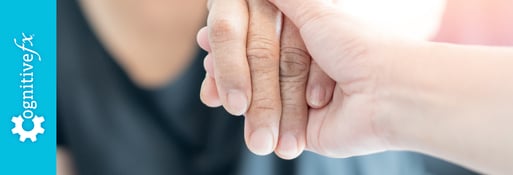Journaling is one of the greatest therapeutic techniques available. Journaling is free, confidential, and convenient. It offers you the opportunity to be your own therapist. You might think journaling must be done sitting down and writing in a diary-type book. If that doesn’t sound appealing, you may be excited to learn there are numerous types of journaling. You can find a style of journaling that is fun and stress relieving at the same time. Journaling offers you a way to process something and let it go.
It can be incredibly helpful after a brain injury! After a brain injury, it can feel hard to express yourself and journaling is one way that can empower you to share yourself in a creative way.
Discover some of the different types of journals below. Try several. If you find one you love, stick with it. If one doesn’t necessarily click for you, don’t force yourself into it. Keep experimenting until you find one that gives you emotional expression, release, or relief.
Types of Journaling
Write it Out
- Daily life and experiences: This is the type of journal many typically think of when discussing journals. Write about your day chronologically. The entries don’t have to be exhaustive. Try writing a little bit each day. Just put a pen to paper and write for a specified length of time or for a certain number of pages.
- Quick journal: Write one sentence a day.
- One word essence journaling: Write one word to summarize the day.
- Question a day: Answer your own questions or be guided by prompts or predetermined topics. I loved my “Q&A a Day: 5 Years Journal” I purchased on Amazon.
- Meditation or transition journal: After work, before you transition to home, write out all your thoughts to assist you in letting go of the stresses of the day and transition into a more relaxed state.
Collections
- Scrapbook journal: Collect photos, tickets, notes, schedules, letters, cards, and anything else of importance. Organize them in a way you enjoy that makes them easy to look at. Make it as artsy or as simple as you want.
- Travel journal: Collect pictures and mementos from your travels and organize them so they are easy to view, allowing you to recall your travel experiences and stories. This journal can also be used to plan future travels.
- Sports journal: Collect your own medals, ribbons, pictures, newspaper clippings, and articles. You could also collect pictures or mementos for your favorite sports teams.
- Joke journal: Collect comics, jokes, funny stories, or hilarious quotes.
Moments
- Specific time frame (wedding, pregnancy, college, brain injury): Collect photos, stories, samples, and contact information for a meaningful time period in your life.
- Time capsule: Collect photos, receipts, newspaper clippings, messages to the future, year in review magazines, or anything that you think is likely to change. Save them to open at a later date.
- Birthday journal: Collect birthday pictures and keep track of the gifts you received, the guests who attended your parties, the types of cake you had, and the activities done each year on your birthday.
Creative
- Bullet journal (BUJO): BUJOs are pretty trendy now, and for a good reason. The basic idea is to write your to-do list, thoughts, emotions, goals, notes, daily happenings, etc. down in one journal in bullet form (as opposed to writing out long paragraphs). It’s an organizational system that you personalize and code with different symbols, colors, and drawings. BUJOs give a more complete picture of who you are by showing different sides of you.
- Artist’s journal: Artists of all types enjoy collecting their ideas, doodles, and dreams to help spark creativity. You can also collect your favorite poems and stories by other authors.
- Unsent release letter: Let go of unnecessary stresses by writing a letter to the stress or the person causing the stress. You will not send this letter or share it with anyone. It is strictly to help you let go of something that is not beneficial to you. Then you can throw it away, tear it up, send it into the sky tied to a helium balloon, or burn it. (For more information on this type of journaling, see our blog post on writing a Letter to My TBI Self.)
Thought
- Gratitude journal: Consciously find things to be grateful for and write them down. Get creative and get inspired. (See our blog post on Gratitude Journals.)
- Spiritual journal: Identify spiritual experiences and write them down. This will help you observe and appreciate your spiritual experiences. Collect speeches, articles, or quotes you find meaningful and inspirational. Write about prayers you’ve had answered.
- Dream journal: Some enjoy writing down their dreams so they can analyze them and look for patterns.
Organizational
- Recipe journal: This could be similar to a recipe book. Record notes on when you’ve cooked something and how it was received. You can also include photos of the delicious dishes you created.
- Health journal: Document your health and vital statistics. This could include diet, exercise, water, sleep, and doctors’ contact information. Keep track of what you are eating and the exercise you are doing. Develop a plan to prepare for an upcoming race. Celebrate your accomplishments!
- Brainstorming journal: Brainstorm journaling comes in handy when you need to make a decision or when you are trying to research something. Brainstorm and write down everything that comes to mind, the logical and illogical. Sort it out on paper. Look for patterns or ideas that stick out to you. Things you may look at include pros and cons, along with wants, needs, or must haves.
- Reading journal: Record what you have read, what you want to read, and what you thought of the books you read. If you’re more of a movie lover, you could also do this for your favorite films.
Relationships
- Relationship journal: Document favorite memories, events, trips, and holidays in a specific relationship by writing down memories, collecting mementos, and taking photos for each special occasion. This journal can help strengthen relationships when significant others, friends, or other family members create these journals together.
Planning
- Planning or project journal: Research and plan a project. Write down your goals and use to-do lists to help keep yourself on task. Check off as tasks are completed! Take before, during, and after photos to highlight your progress, and be sure to celebrate progress, growth, and all the little wins along the way.
Journaling can often be overwhelming if you get caught up in finding the “perfect” way to journal. Remember that there is no right or wrong way. There’s only your way. You are journaling for you. What makes you happy? What inspires you? What do you want to remember? What do you need to express? Find out what feels right to you and, most importantly, have fun with it!



